Common’s Shared Living Concept Brings $3,000 Bedrooms to Williamsburg
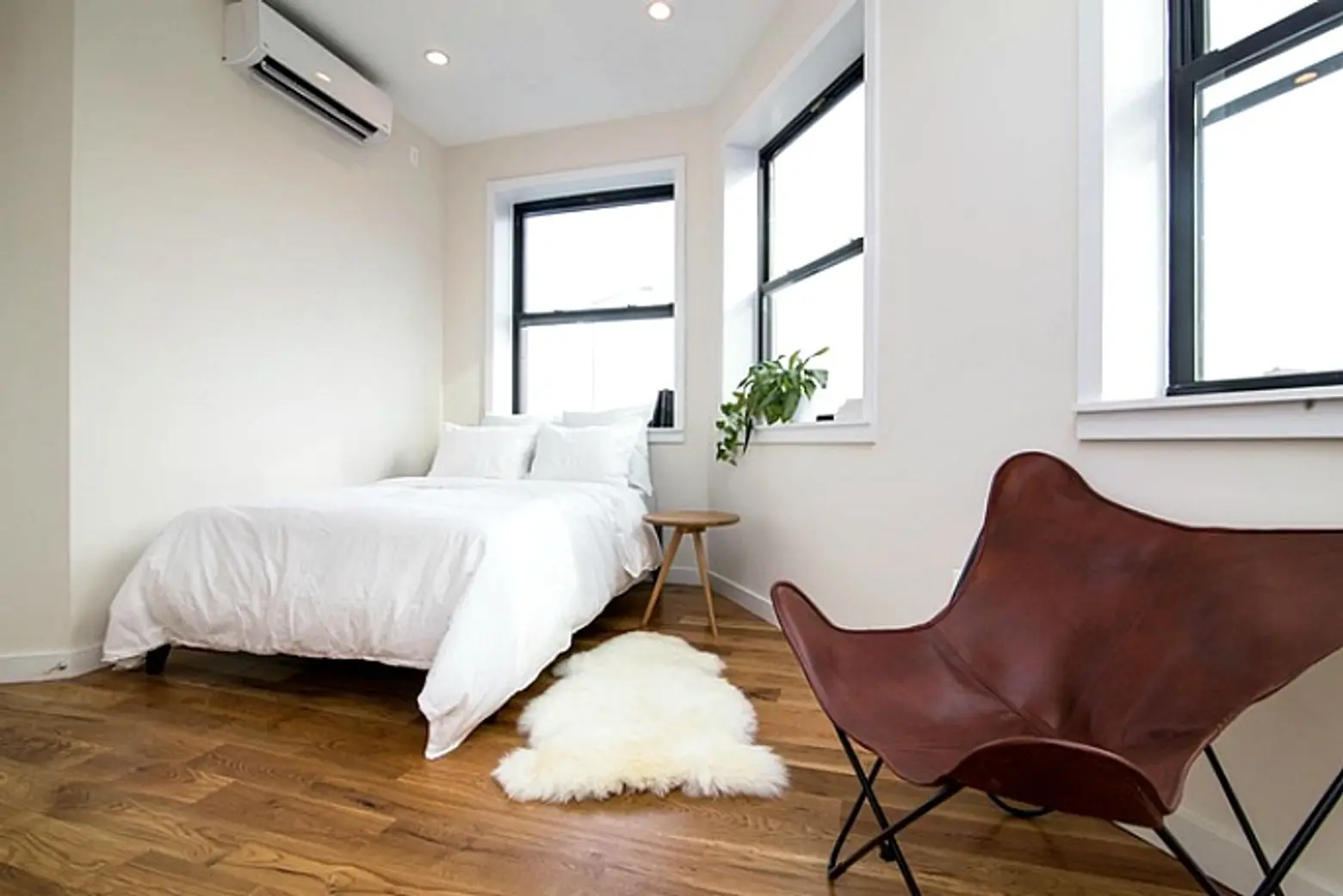
The perpetual waves of recent graduates and other young professional hopefuls streaming into New York City seem to be finding themselves stuck when it comes to finding a place to bunk between cubicle and pub. So it’s no surprise that a growing field of enterprising entrepreneurs–after observing the moderate success of the co-working model and the mind-melting success of Airbnb–have stepped in with a hybrid of all of the above.
6sqft previously noted the Wall Street launch of co-working startup WeWork’s communal living concept. Now, another co-living player, Common, who recently brought upscale shared housing to Crown Heights, will be opening the doors on a communal residence in prosaically trendy Williamsburg at the corner of South 3rd Street and Havemeyer. Common CEO Brad Hargreaves with partner Henry Development is building a 12-suite, 51-bedroom, 20,000-square-foot residence, the company’s first ground-up effort here. The most buzz-worthy bit about this new addition is that members will pay $1,800 to $2,700 a month for a bedroom in one of 12 duplex suites, with one, two or three other roommates. The higher-end numbers represent rooms with a private bath–essentially a studio with friends with benefits.
The concept isn’t as new as some would have us think. As 6sqft noted previously:
The idea of communal living is not a new one. Fast Company mentions “the kibbutz, the commune and the close-knit neighborhood,” and it’s worth mentioning a time not too long ago when the SRO, the communal boarding house, and the residential hotel were more respectable than they became after the post-war suburban housing boom; communal living was a fairly respectable option for many without meaning skid row.
What engenders so much of the jeering and finger-pointing is the idea that the possibly parent-funded professional-class members of these new communities are simply gullible and clueless, paying a steep chunk of their income for what is basically an overpriced SRO. In addition to the resentment at these “spoiled” millenials’ ability to shell out, there’s also some outrage that even for similar prices, they might well not be likely to find the equivalent or better on the market, settling for a potentially scary shared space in a less-than-desirable, inconvenient neighborhood.
The average rent for a studio in Williamsburg is now around $3,024. And it won’t come with Common’s standard weekly maid service, its own built-in Slack channel (a group chat and collaboration platform used in tech and media offices that will be installed in every suite), or a host of built-in future bridesmaids. Common provides an “activities budget” and rooms will be decked out in chic furniture from West Elm, mattresses by Caspar, and Parachute linens. Potential roommates undergo background checks and financial screening, but otherwise are placed on a first-come, first-served basis.
The new co-living models may be personality-free, but you don’t have to clean up after yourself, and they’re certainly cheaper than an actual hotel if you do the math. Which may be another reason for the derision: The more cynical among us may look down their noses at the nest-seeker who’s less picky about the personality of his or her pad and its inhabitants, and would rather have a pre-packaged party and not have to deal with decor, cooking or buying toilet paper (See: McKibbin Lofts). While the rest of us are hoping to carve out a happy home in our tiny apartments, certain (overgeneralized of course) subcultures (hackers, startup addicts, Wall Street traders and other “bros”) are seen as choosing dormitory over domesticity.
No matter how much understanding we have, it’s hard not to squirm a little when looking at the Common site, which sometimes veers into territory usually reserved for choosing a summer camp for a small child: “Everything you need to instantly feel at home is included in your membership including fully furnished rooms, linens, free onsite laundry, every kitchen appliance imaginable, weekly cleaning services, high-speed wi-fi, shared kitchen and bathroom staples, all utilities and great friends.”
There’s also a “values” section. And there’s the testimonial from one satisfied Common-er, David, who writes: “I brought only my clothes, as everything else was provided for me, I made instant friends in a city where I didn’t know anyone, and unlike a 12 month commitment my lease was flexible with my schedule.” David’s only been in the city for a month, so the Airbnb comparison isn’t far off either.
Hargreaves makes it clear that he doesn’t own the the properties he uses–they’re either vacant, or, as with Williamsburg, as yet unbuilt, with his company acting as master leaser and property manager. Units at the two Crown Heights residences–a 19-bedroom house on Bedford Avenue and a 10-bedroom house on Albany Avenue–are fully leased according to Hargreaves, after receiving “hundreds of applications.”
RELATED:
- WeWork’s Communal Living Concept on Wall Street Gets Its First Residents
- New Micro Apartment Communities Are Flexible but Not Cheap
- High Rents Lead Newlyweds to Seek Roommates
- Manhattan Millennials Who Can Afford to Buy Are Still Choosing to Rent
All photos courtesy of Common
Explore NYC Virtually
Leave a reply
Your email address will not be published.
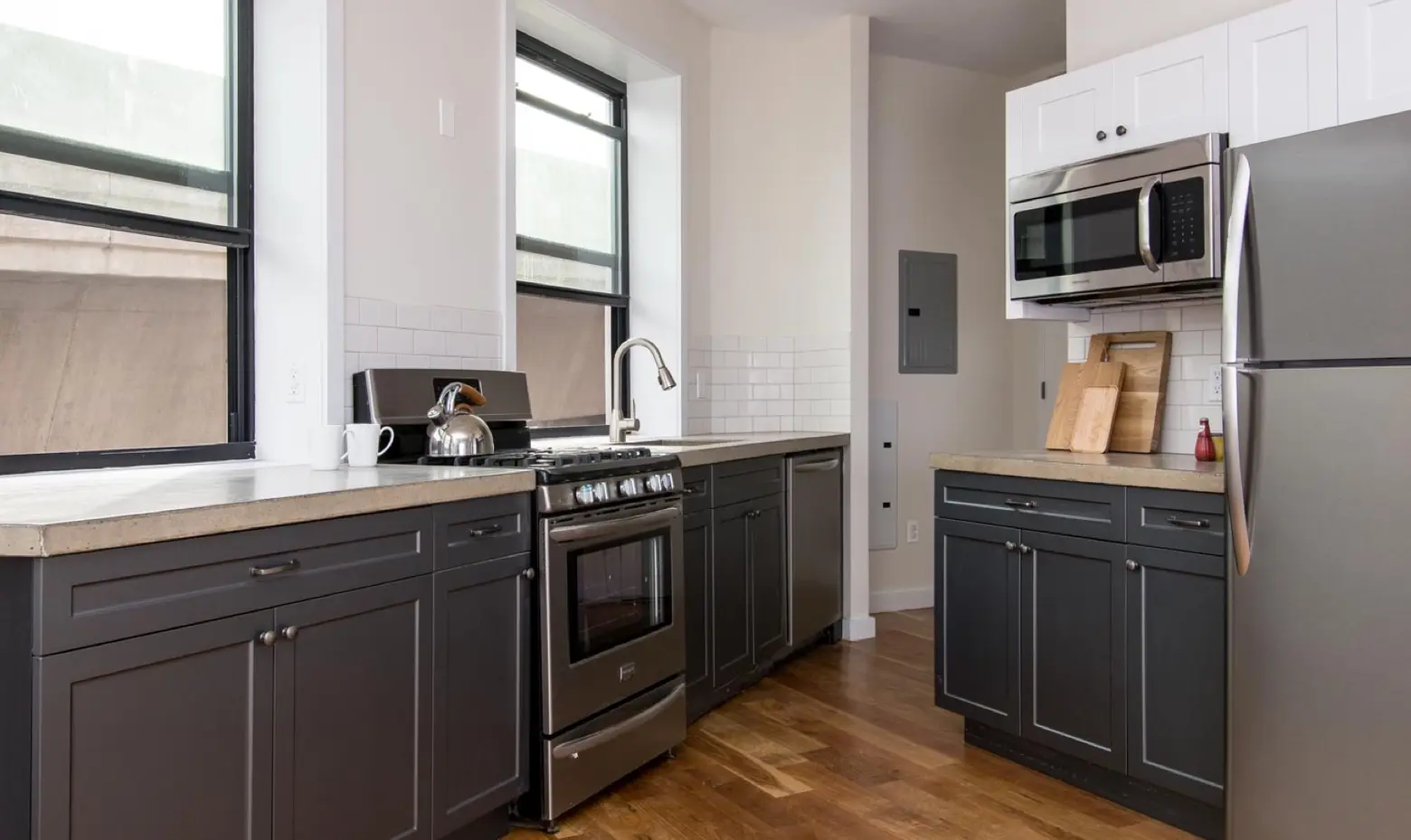
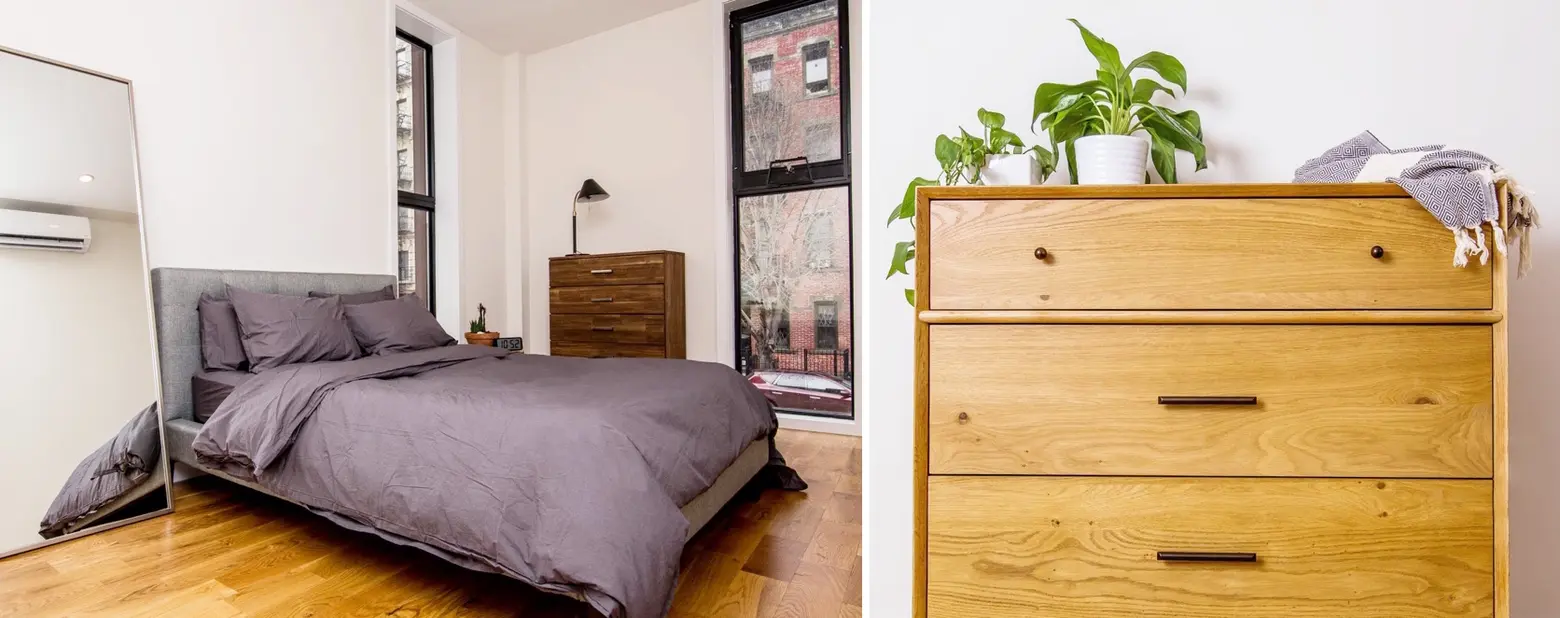
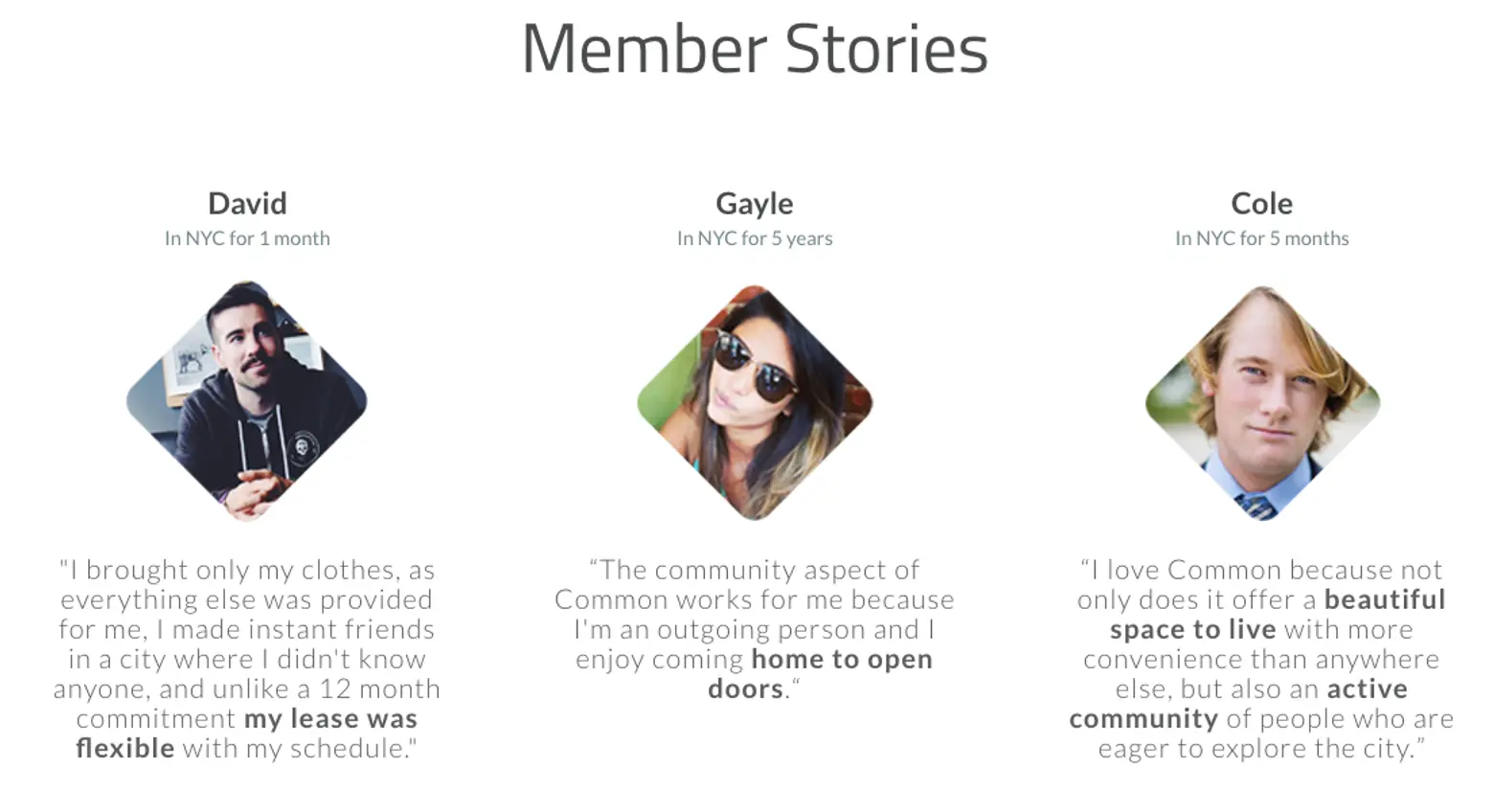
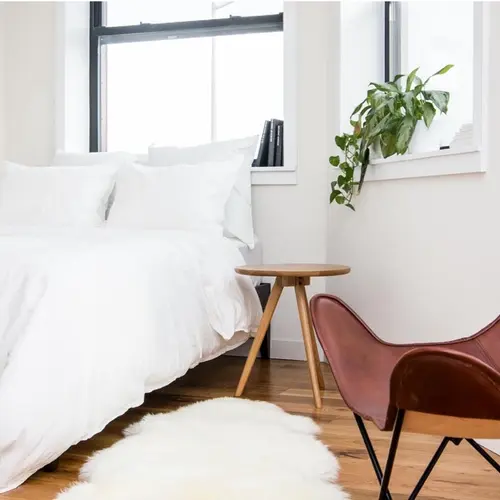
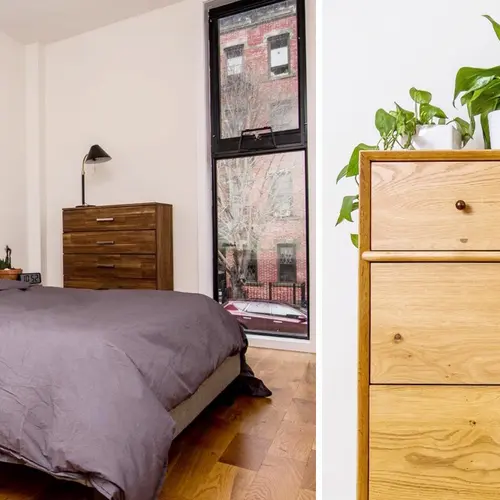
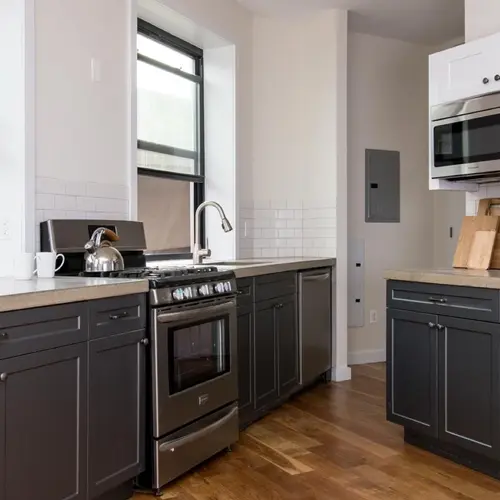

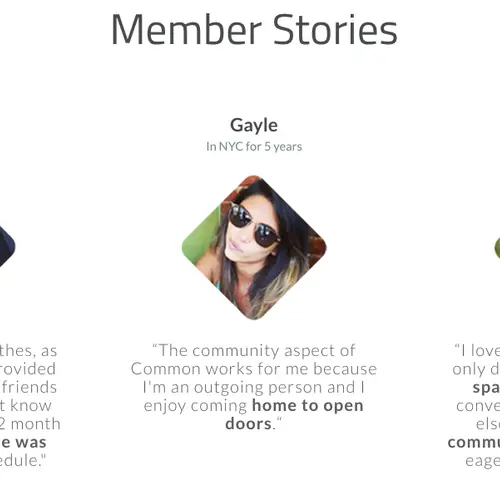
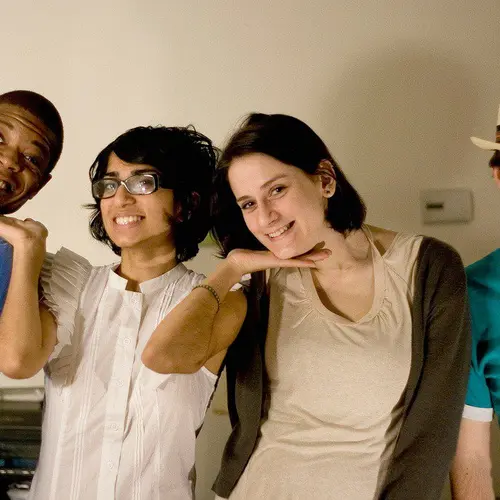

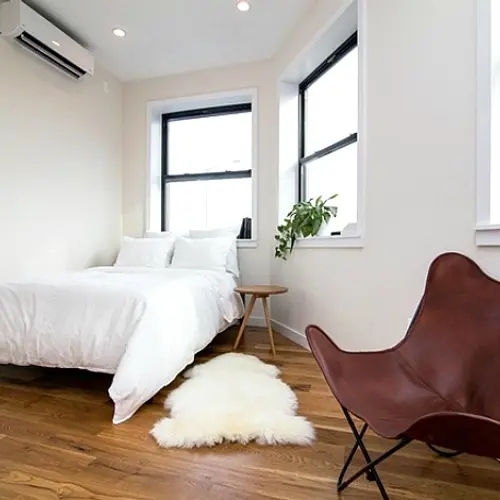
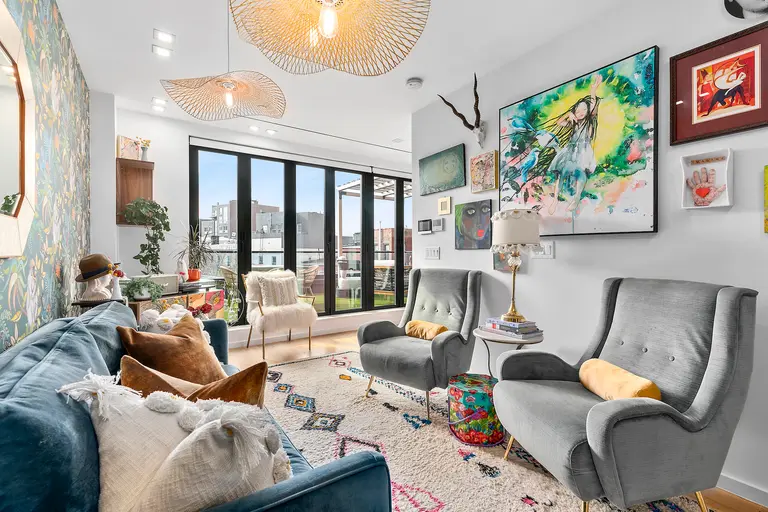

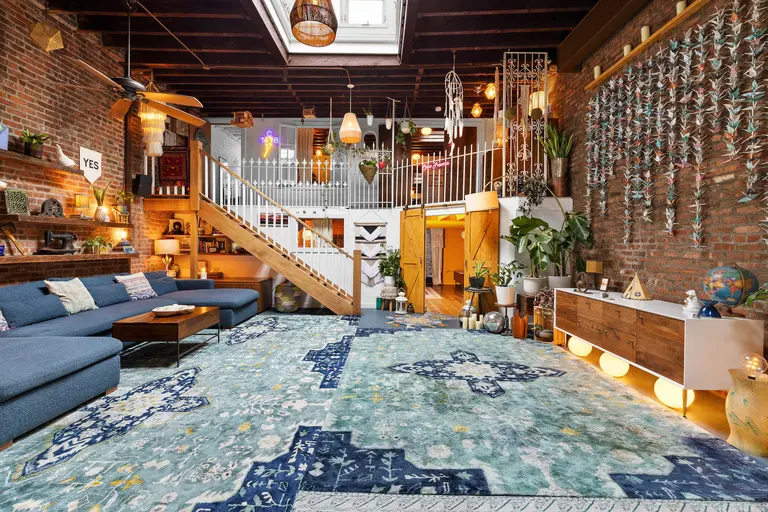


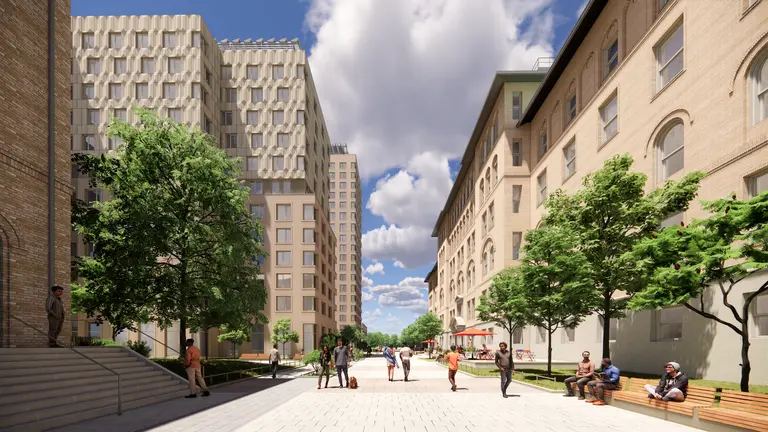






















Ha! The helicopter parenting-life can continue even when one forced to leave the nest.